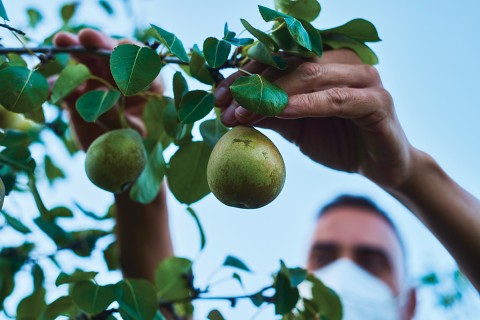The pandemic didn’t make our food system vulnerable
It always has been—because vulnerability is part of creation.

COVID-19 has messed with our food system.
Food service workers in all industries have been especially at risk, with high case counts in tiny counties notable for their meatpacking plants or farmworker communities. We’ve also seen the vulnerability in grocery store clerks and restaurant workers.
As consumers, we are usually shielded from vulnerability related to food. Our industrial food system conditions the consumer to expect the availability of all things at all times, regardless of geography or season. We can go to the store and find whatever we want whenever we want it.





